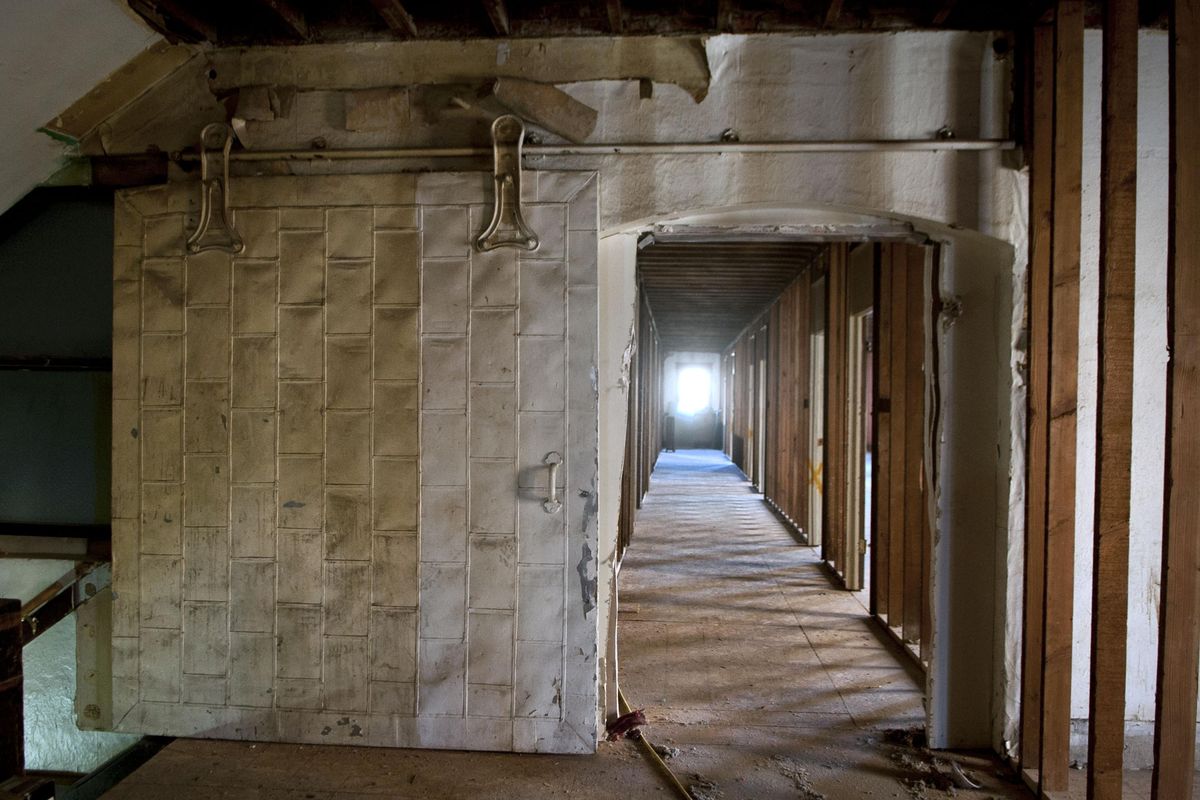Clean air agency says Otis Hotel developers violated asbestos rules

Troubles continue to mount for the renovation of the Otis Hotel in downtown Spokane, as the Spokane Regional Clean Air Agency issued asbestos-related violations to five companies working on the rehabilitation earlier this month.
The notice of violations will soon be followed by monetary fines and follows the issuance of fines totaling nearly $140,000 to three companies in November for worker health and safety violations.
The air quality violations stem from what the clean air agency says was a failure to follow procedures related to the handling and disposal of asbestos-laden material from the 107-year-old downtown building. According to the local air agency, 105 dumpsters were removed from the Otis before its inspectors arrived. At that point, debris in the building tested positive for asbestos. Similar debris was found in two dumpsters outside the building.
The five companies who face the air quality fines are Native Land Development LLC, 4 Aces Restoration, Santiago’s Handyman Service LLC, Hos & Bos LLC and 110 S. Madison LLC.
Lori Rodriguez, compliance section manager with the clean air agency, said she could not estimate what the monetary fines will be when they are issued in mid-January. She did say that the type of violations the companies face are “common,” but the scale of the project sets it apart.
“There have been similar violations. The difference is the scale,” she said. “These kind of things happen all the time, it’s just the scale of it.”
Curtis Rystadt, a former mortgage broker who purchased the building for $1.4 million in June 2017, also owns two of the companies faced with fines – Hos & Bos and 110 S. Madison. Since purchasing the building with plans to turn it into a boutique hotel with 112 rooms, Rystadt has moved quickly on interior demolition but has saved many historic aspects.
Rystadt pushes back against state and local agencies’ claims, and has claimed innocence since the state Department of Labor and Industries stopped work on the building in March while local and state inspectors investigated the handling and removal not just of asbestos, but also lead, which is in the aged building’s paint.
Three months after the “order of immediate restraint” was taped to the door, work began again.
Besides providing reams of documentation to The Spokesman-Review that he says proves his innocence in the matter, Rystadt criticized state and local inspectors, at one point calling a Department of Ecology inspector a “bonehead,” and said government “bureaucracy” led to “incompetency.”
When Rystadt’s company was fined $69,500 in November for a series of “serious” and “general” violations of state worker safety and hazardous materials protections, he said he would appeal.
In a recent walk-through of the building, Rystadt described his work to transform the Otis into Hotel Indigo Spokane, part of the global hospitality chain InterContinental Hotels Group. The hotel will have 112 rooms, a restaurant and a bar. Each floor will be tied to a different era of the hotel’s past.
The Otis was built in 1911 as the Willard Hotel, a place for transient workers who needed a place to sleep and bathe. None of the rooms had a bathroom, but instead shared a communal bathroom on each floor. The hotel changed hands and names many times over the years – in 45 years it went from the Willard to the Atlantic to the Milner to the Earle to, finally, the Otis in 1956.
While the hotel always was linked to a hardscrabble lifestyle, more recently it was converted to low-income apartments. In the mid-1990s, a Spokesman-Review article on the “litter-strewn, two-block strip of West First” described the grim situation.
“There’s the Handy Market, a sex arcade, the Coach House Restaurant, a homeless-aid office and a place to get free needles, condoms and popcorn,” the 1995 article read. “This slice of Spokane has a high crime rate and such weak political pull the city rarely bothers to clean its streets or sidewalks. It’s so bleak its lone bar is called the Dead End Tavern, where beer pitchers sell for $2, and razors go for 50 cents.”
The 400 people living in the city’s “most dangerous downtown neighborhood” paid as little as $140 a month. About 10 years later, the tenants were evicted, leading to the vacant structure it is today.